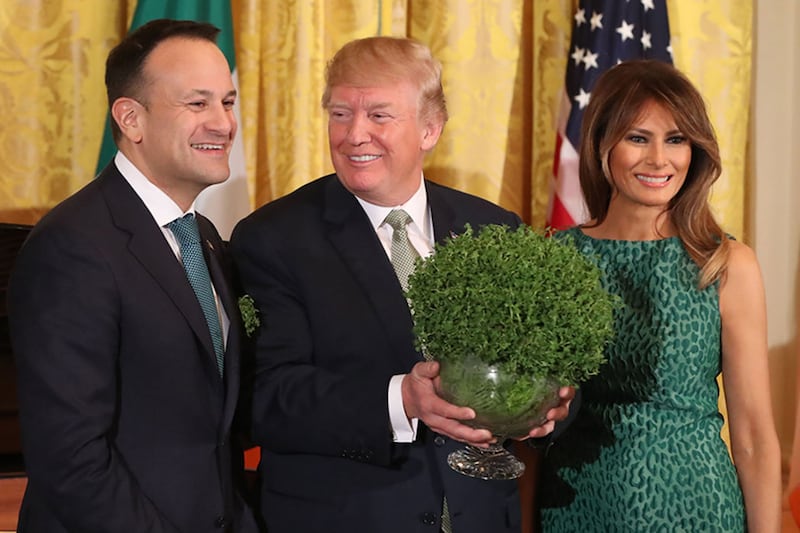Question: when is an agreement not an agreement? Answer: when the DUP leadership realises it has gone too far ahead of its members. That, dear reader, explains why the Stormont talks collapsed.
Last Saturday a well-placed source close to the DUP assured me that a deal would be signed on Monday, pending approval by the party's MLAs. But Monday came and went (along with two premiers) and there was no deal. The DUP MLAs realised they could not sell it on the doorsteps.
On Tuesday, Arlene Foster stated bluntly that there would be no stand-alone Irish Language Act. She then listed what would not be in the act (even though there was not going to be one) effectively asking her MLAs to think again.
They decided that thinking again (or even thinking for a first time) could damage their electoral health. So Arlene was forced to collapse the talks on Wednesday.
Meanwhile the word from within Sinn Féin was that it too was expecting a deal on Monday, or soon afterwards. The party has now revealed that an Irish Language Act was to be part of a wider legislative process (a decision anticipated by some in Conradh na Gaeilge for several months now) and that there was "no meeting of minds on marriage equality".
Despite what was a relatively poor deal for the party, there was general confidence that the leadership could sell it to members.
Although this column has consistently suggested that Sinn Féin would not return to Stormont until after the next Dáil election, it indicated a few weeks ago that the party was being tempted back into the assembly. They wanted to convince Leo Varadkar that doing a deal with the DUP would make them suitable coalition partners for Fine Gael.
(The column indicated that progress on the temptation could be gauged by the relationship between SF and FG in the Dáil. Right on cue, both parties joined forces to attack Fianna Fáil on Thursday.)
In addition, the taoiseach needed a northern ally on Brexit with a degree of political power. Gaining ministerial control over agriculture and food would have left SF in a key position to bolster the Dublin government's anti-Brexit strategy, particularly with someone like Conor Murphy in charge.
It all would have fitted neatly with the hand-over from Gerry Adams to Mary Lou who, on her first working day in office, would have resurrected Stormont, Lazarus-style, and enhanced her credibility in Dublin. (Yes, the timing could have been a coincidence, but SF does not do coincidence.)
So both parties wanted a deal, even though a return to Stormont would have left them visibly responsible for our collapsing public services and neither party is blessed with a surplus of potential ministerial talent.
So where do we go from here? For the DUP, it may mark the end of Arlene Foster's political career, as the balance of power within the party switches from Stormont to Westminster. It may even mark a new type of DUP, which will be more integrationist than unionist.
Sinn Féin is no worse off. It is still on track for coalition in Dublin, because even though it took the blame for collapsing Stormont, that blame has now switched to the DUP for collapsing the talks.
For the past year Sinn Féin has conditioned middle Ireland into supporting an (undefined) Irish Language Act. As a result, while Simon Coveney will be disappointed at the failure of the talks, his highly vocal support for an act leaves him on the side of SF.
A year ago, SF pulled down Stormont because the leadership had gone too far ahead of the party rank and file. The DUP collapsed the talks this week because Arlene Foster had made the same mistake.
Both parties condition their electorate in a way which boosts their sectarian popularity, but then limits their ability to depart from hard-line positions in trying to form a mandatory coalition.
This dilemma offers an interesting insight into the inherent difficulty in northern politics: the greater your electoral success, the less chance you have of entering government, because your hands are tied by self-created sectarian expectations. In other countries, elections lead to the formation of governments. Here, they tend to prevent them.
During the troubles, sectarianism killed people. Now it is killing politics. But no one seems to notice that until we stop accommodating sectarian poker, we can never form an effective government.










